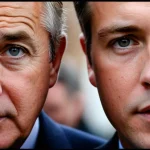Immediate Political and Legal Changes Following Brexit
Brexit triggered profound political and legal shifts between the UK and the EU, reshaping their relationship from January 2021. One of the most marked Brexit legal impacts is the end of EU law supremacy in the UK, restoring parliamentary sovereignty and enabling independent legislative action. The UK enacted laws to replace EU frameworks, notably the Withdrawal Agreement and the Trade and Cooperation Agreement, which define new rules for trade, security, and judicial cooperation.
Key legislative changes included the establishment of border controls and customs checks, significantly altering the flow of goods and services. Politically, the UK’s departure stirred recalibrations in UK-EU politics, requiring fresh diplomatic engagement channels. Early UK responses focused on asserting national control while attempting to safeguard economic interests. Conversely, EU policymakers aimed to maintain cohesion and safeguard the single market’s integrity.
Additional reading : What are the key factors influencing UK economic growth?
These changes sparked ongoing debates over sovereignty versus practicality. While the UK embraces autonomy, legal complexities emerged concerning Northern Ireland’s status and dispute resolution mechanisms. Overall, Brexit consequences in politics and law are deeply intertwined, framing future UK-EU interactions and affecting broad policy domains.
Economic Repercussions and Trade Realignment
Brexit trade effects have profoundly reshaped the UK-EU economy. The new Trade and Cooperation Agreement limits seamless market access, requiring customs checks and regulatory compliance previously absent. This has increased costs and delays for businesses, altering supply chains and trade volumes.
Also read : How Did Recent UK Policy Changes Impact International Relations?
Key Brexit consequences include divergent trade patterns: UK exports to the EU have declined in sectors like fisheries and manufacturing, while non-EU trade has shown tentative growth. The imposition of tariffs and regulatory barriers affects competitiveness, prompting firms to reconsider investment strategies. Some have relocated operations within the EU or sought new markets to mitigate Brexit trade effects.
Early responses from businesses highlight quick adaptations in logistics and sourcing. The UK government initiated schemes to support exporters adjusting to new rules, but uncertainties remain. On the EU side, protecting the single market remains a priority, influencing their trade policies toward the UK.
Overall, Brexit trade effects extend beyond immediate disruption. They signal a long-term economic realignment with profound impacts on the UK-EU economy, compelling businesses and policymakers to navigate complex post-Brexit trade relations continuously. This evolving landscape demands strategic adjustments tailored to shifting regulatory and commercial realities.
Immigration and Movement of People
Brexit brought significant changes to Brexit immigration policy by ending the freedom of movement post-Brexit between the UK and the EU. New immigration controls require EU citizens wishing to live or work in the UK to apply under a points-based system, similar to non-EU nationals. Residency and work permits now involve stricter eligibility criteria, reshaping historic patterns of UK-EU migration.
This transition has immediate impacts on sectors reliant on EU labor, such as healthcare, agriculture, and education. Workforce shortages emerged in several industries due to reduced migration flows, pressuring businesses and public services. Families facing residency status uncertainties also experienced disruption, complicating social and community ties.
In the short term, these immigration changes created administrative challenges and delays. However, the UK government argues that the new system better targets skills and economic needs. Over the longer term, demographic shifts are expected as migration levels adjust to the new policy framework. Monitoring these trends will be essential in assessing the broader Brexit consequences on society and the economy. This evolving landscape continues to require careful management to balance economic demands with immigration control objectives.
Diplomatic Relations and Ongoing Negotiations
The transformation in UK-EU diplomacy following Brexit has been significant, characterized by a cautious and evolving engagement style. The departure ended the former institutional integration, requiring new bilateral channels for dialogue. Early Brexit negotiations focused on establishing frameworks for trade and security cooperation. However, persistent disputes—particularly over Northern Ireland’s protocol and fisheries—have posed major challenges.
One key question is: What major obstacles have shaped ongoing UK-EU talks? The answer lies in differing interpretations of agreements and mutual concerns over sovereignty and economic interests. These hurdles have triggered periodic tensions, yet both sides recognize the need for continued dialogue to manage intertwined interests.
Breakthrough moments have often involved compromise on sensitive issues, such as phased implementation of protocols or enhanced dispute resolution mechanisms. Maintaining cooperation on security, data sharing, and climate change reflects shared priorities despite political differences.
The dynamic nature of future UK-EU agreements depends heavily on political will and practical incentives. Continuing negotiations demonstrate a commitment to stable relations but underline inherent Brexit consequences: ongoing complexity and negotiation fatigue. Navigating this landscape demands adaptable diplomacy balancing national interests with the benefits of constructive partnership.






